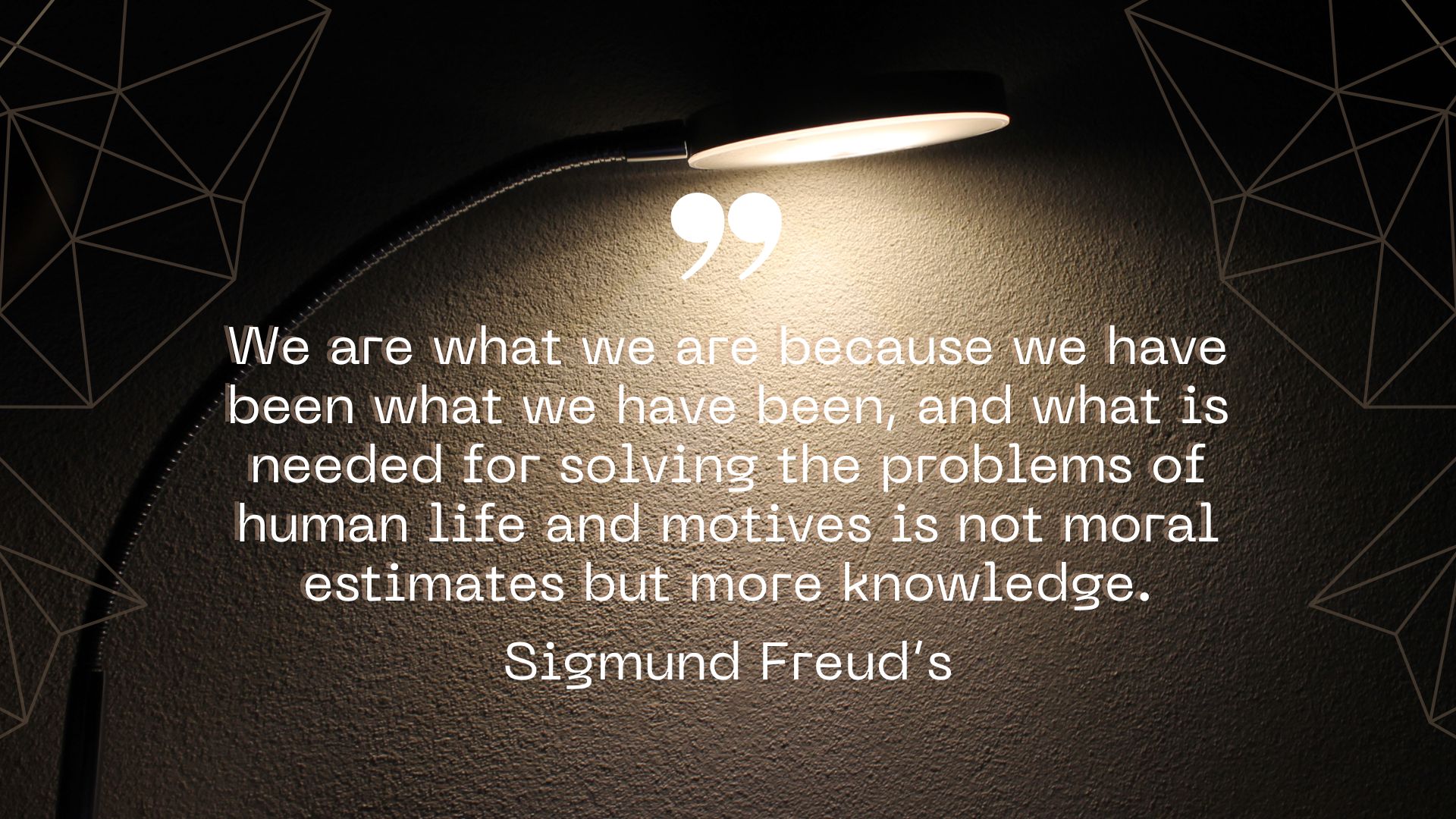We are what we are because we have been what we have been, and what is needed for solving the problems of human life and motives is not moral estimates but more knowledge.
Sigmund Freud___
We are what we are
The quote suggests that our past experiences and actions shape who we are and that understanding these experiences and the underlying motives behind them can be more useful in addressing the problems and challenges of human life than moral judgment.
It is important to recognize that our actions and behaviors are influenced by a wide range of factors, such as our beliefs, values, emotions, and experiences. By understanding these factors and seeking to gain more knowledge and understanding, we can better understand ourselves and others, and we can work towards finding solutions to the problems and challenges that we face in life. It is also important to recognize that it is not always productive or helpful to focus on moral judgments, as these can often be subjective and can get in the way of finding practical and effective solutions.
Finding solutions to problems
Finding solutions to problems is a process of identifying and addressing challenges or issues that need to be addressed. It involves identifying the root cause of the problem, generating and evaluating potential solutions, and implementing and evaluating the chosen solution.
There are a few key steps that can be helpful in finding solutions to problems:
- Define the problem: Clearly and accurately defining the problem is an important first step in finding a solution. This can involve gathering information, seeking input from others, and breaking the problem down into smaller, more manageable pieces.
- Generate potential solutions: Once the problem is defined, it is time to come up with potential solutions. This can involve brainstorming ideas on your own or with a group, and considering a range of different approaches.
- Evaluate potential solutions: Once you have a list of potential solutions, it is important to evaluate each one to determine which ones are most feasible and effective. This can involve considering factors such as cost, resources, and potential consequences.
- Implement the chosen solution: Once you have selected the best solution, it is time to put it into action. This may involve making a plan, allocating resources, and taking any necessary steps to ensure the solution is successful.
- Evaluate the results: After implementing the solution, it is important to evaluate the results to determine whether the problem has been effectively addressed. If not, it may be necessary to go back to the drawing board and come up with new solutions.
It is important to be patient and persistent when finding solutions to problems, as it may take time and effort to identify and implement effective solutions. It is also important to remain open to new ideas and approaches, as these can often lead to creative and effective solutions.




